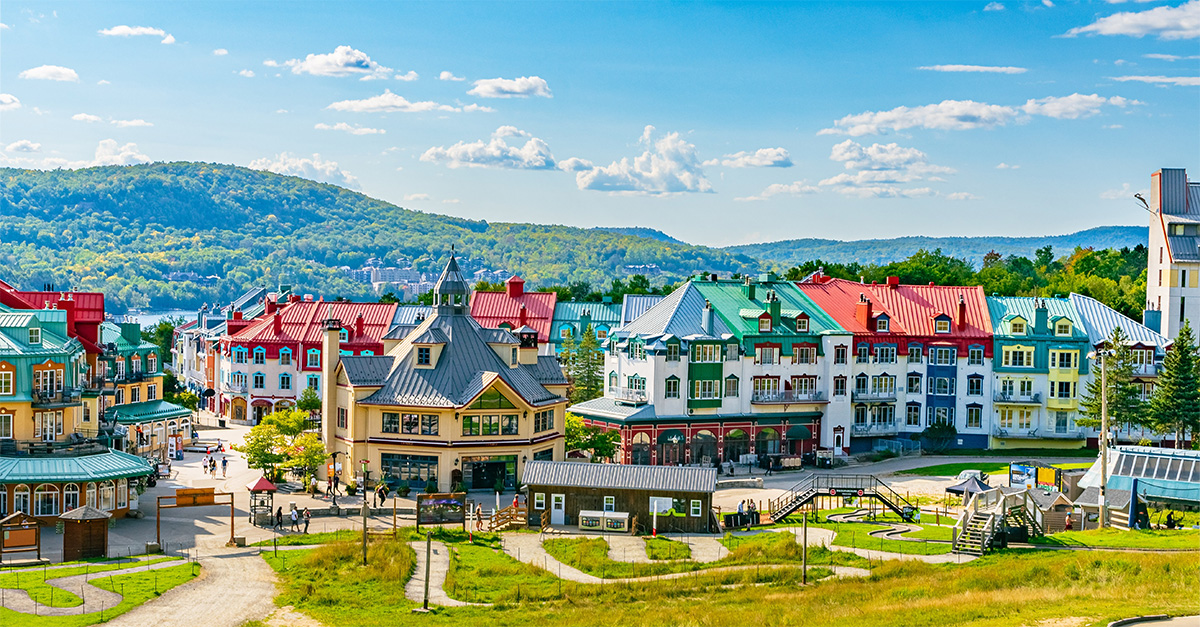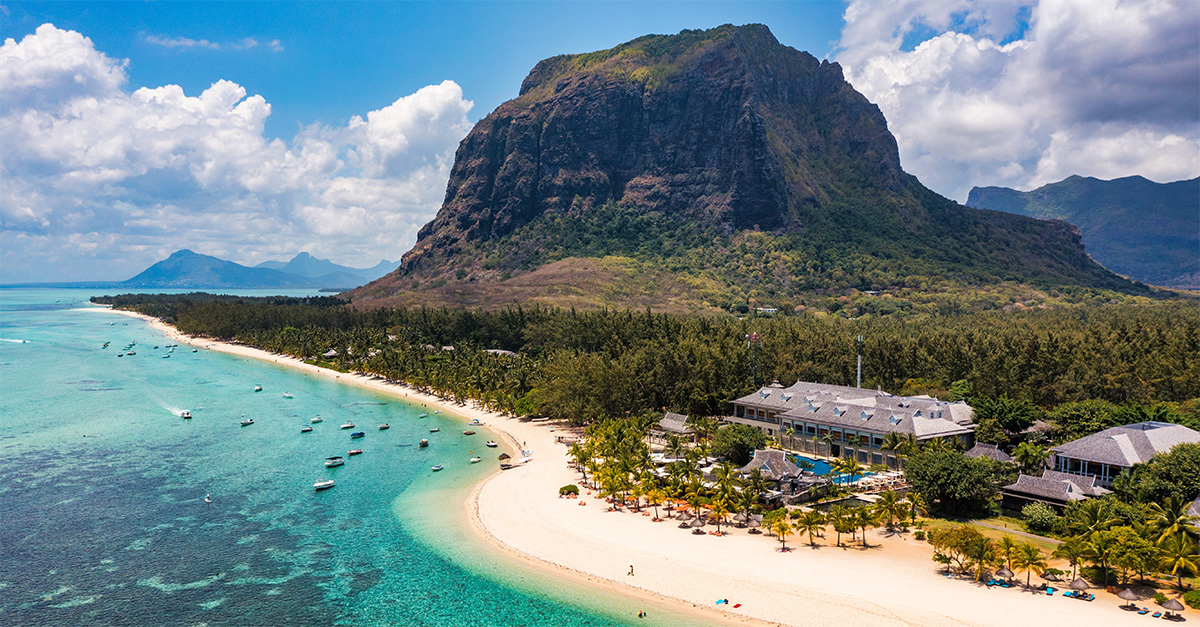Joanna Booth encounters a family of Rwanda’s rare primates
Like this and want more details? Click here to download and save as a PDF.
“They are very near,” whispers Gus.
My heart leaps – it feels as if it’s literally banging on my ribcage – and I stifle the desire to jump up and down and clap my hands like an excited child. Relative quiet is necessary when you’re creeping up on a group of mountain gorillas.
We put down our backpacks, and wielding just our cameras, pick our way through the thick jungle vegetation. And then, there he is. Munching on a leaf and looking down at us with an expression somewhere between indifference and disdain – my first gorilla.
It’s hard to comprehend how rare these creatures are. There are fewer than 900 mountain gorillas on the planet – that’s about one per eight million people on earth. And I’m about to spend an hour in their company. I feel like David Attenborough.
Sell
Rwanda is one of a mere handful of places where you can see mountain gorillas in the wild, (the others are Uganda and the Democratic Republic of Congo), and it was in the country’s Volcanoes National Park that Dian Fossey lived, worked, and wrote her famous book Gorillas in the Mist.
These hefty primates, with facial expressions and mannerisms so eerily similar to our own, are an utter joy to watch. Our allocated hour with the gorillas flew past, as we watched a baby devouring vegetation from a comfy nest and two females vying for the attentions of the silverback, Ugenda, who – hungover from eating too many intoxicating bamboo shoots – paid them scant and pained attention.
The gorilla tourism industry here is established and well organised, allowing visitors to encounter these creatures in a low-impact way while raising revenue to fund their protection from poachers. Permits, costing $750 a day, are required, strictly limiting numbers, and despite the relatively high cost, these sell out well in advance – this isn’t the spot for clients to risk leaving booking until the last minute.
Alongside gorillas, sadly Rwanda is still associated by many with the brutal genocide of 1994, where as many as a million of its people were killed over a 100-day period.
Looking at the clean, green, serene countryside of this still predominantly agricultural land, it seems unthinkable that such events could have taken place here. Twenty years later, this tragic time is by no means ignored – evidenced by the 200 memorial sites around the country – but nor are Rwandans letting it hold their country back.
Communities seem cohesive – aided at least in part by a national programme that means the last Saturday morning of every month is dedicated to community service, with groups coming together, often to pick litter from the streets. The country is forward-looking, and capital Kigali is modelling itself as a business hub for East Africa, with a $300 million conference centre opening next year.
Tourists have tended to venture only as far as the Volcanoes National Park and Kigali, further reinforcing the gorillas-and-genocide image. However, as new destinations open up it’s increasingly evident that there’s more to Rwanda than that.
The reintroduction of lion and black rhino to the Akagera National Park makes it a genuine prospect for traditional game drives, and clients can tick off more primates, including chimpanzees, in the southern Nyungwe Forest.
There’s even the chance to bolt on a beach stay, on the shores of Lake Kivu. All this, along with an overwhelmingly warm and genuine welcome from the Rwandan people, makes a compelling case for UK tourists not just to visit, but to extend their itineraries.
See
Kigali: It’s in this small, low-rise, low-key capital city that Rwanda’s policy of rubbish removal is most evident – it’s absolutely spotless. Scattered over the rolling hills that characterise the country, it has a pleasant atmosphere despite not being over-endowed with sights. However, the Genocide Memorial Museum is an absolute must for any visitor with a desire to comprehend the tragic events of 20 years ago. Exhibits are well designed and informative, and for most who come to the country it’s essential, if harrowing, viewing.
Volcanoes National Park: It’s among the jungle-clad foothills of these volcanoes that clients will have their moment with the mountain gorillas. After a 7am briefing at the park headquarters, visitors are split into groups of a maximum of eight, and allocated a guide, and a family of gorillas to track. After driving to drop-off points around the park, trekking begins, through farmland and into jungle, and can last anything from a few minutes to many hours depending on where the gorillas are based that day. Park staff try to match abilities with treks, giving older and less mobile clients an easier ride. Frailty need be no barrier – those with real mobility issues can pay a team of porters to carry them most of the way on a stretcher packed with pillows and blankets, and just walk the last stretch. Other activities in the park include tracking troops of playful golden monkeys, climbing the volcanoes, and hikes of varying lengths, including one to Dian Fossey’s grave.
Akagera National Park: There’s a variety of terrain within this northeastern park’s borders, from plains and highlands to a network of swamps and lakes that has led some to nickname it a mini-Okavango Delta. After a rocky time in the 1990s, it’s being returned to its former glory with the help of conservation agency African Parks. With lion already reintroduced and black rhino coming next year, clients will be able to see all big five here, plus rarities including the shoebill stork. Kamili Safaris’ Tim Henshall places it near the top of his list of national parks in Africa – a sign that it’s becoming a real contender for classic game safaris once more.
Nyungwe Forest National Park: This mountain rainforest is among the most pristine in Africa – it even stayed green through the Ice Age. Visitors mainly come to track the habituated chimpanzees that live here, plus 12 other primate species including black-and-white colobus monkeys, and more than 300 species of birds, 16 of which are endemic. It’s worth clients walking the Igishigishigi Trail even if they can’t pronounce it – it includes a 200-metre-long series of canopy walkways, 70 metres high, giving a chimp’s-eye view of the forest.
Lake Kivu: Running along Rwanda’s western border, Lake Kivu is huge. Most tourists head for Gisenyi, where low-key activities include tea plantation tours, boat trips and relaxing on the lake’s sandy beach.

Stay
International brands are still to make their mark on Rwanda, but that’s starting to change. In Kigali, a Radisson Blu and a Marriott are under construction, and Kempinski’s Hotel Des Mille Collines – the original Hotel Rwanda made famous in the book of the same name – is scheduled for a major refurb.
I stayed in the 148-room Kigali Serena, a beautifully maintained five-star just 10 minutes from the airport. Rooms are large, comfortable and recently-refurbished, and the food is good, with both Rwandan and international dishes on offer for dinner and at the mind-bogglingly extensive breakfast buffet. The sundeck and pool make the perfect hideaway for a few hours of sun-soaked relaxation, great for either just-arrived clients, or those about to depart.
The area edging Volcanoes National Park has the widest choice of accommodation, including the high-end Sabyinyo Silverback Lodge, part of the Governors Camp portfolio, and the more affordable Mountain Gorilla View Lodge.
I stayed at Virunga Lodge, a gorgeous property operated by gorilla-specialists Volcanoes Safaris. Perched on a hill, there are 360-degree views of the twin lakes Bulera and Ruhondo, and plenty of spots to appreciate them from. The main lodge has extensive terraces to the restaurant and bar areas, plus a cosy fire in the lounge for chilly evenings.
Two new bandas, or cottages, were added this year, bringing the total to 10. Each has a very private setting, and ours, the extremely spacious Ibiyaga, had incredible lake views and luxurious African-styled decor. The food is excellent, and the service flawless and genuine. Regular traditional dance performances from a local youth group make for a lovely cultural flourish.
In Akagera, book clients into the year-old, lakeside Ruzizi Tented Lodge (pictured below), the first of its kind in Rwanda. There are nine en-suite tents, and activities include jeep and boat safaris, and fishing.
The 22-room, five-star Nyungwe Forest Lodge sits on the borders of the national park of the same name in the grounds of a working tea plantation. When clients aren’t trekking, they can have a spa treatment or take a swim in the heated outdoor pool.
In Gisenyi, the 66-room Lake Kivu Serena Hotel sits on a sandy, palm-lined beach in tropical gardens. There’s a large pool, spa and two restaurants. An hour from the Volcanoes National Park, this is a lower-cost alternative to staying at a gorilla lodge, for trackers on a budget – though they will need to leave the hotel at 5am. Luckily, there’s nothing like a gorilla to take the sting out of an early morning.

Credit: John Dickens




